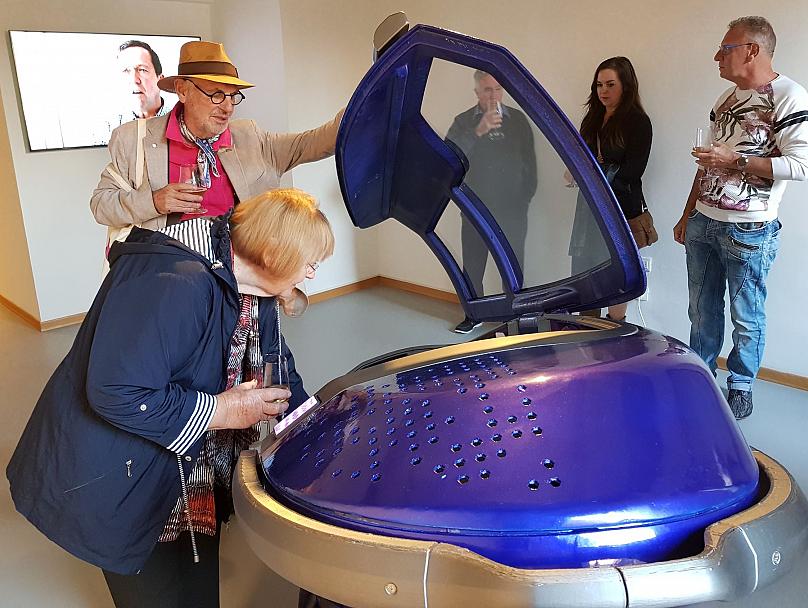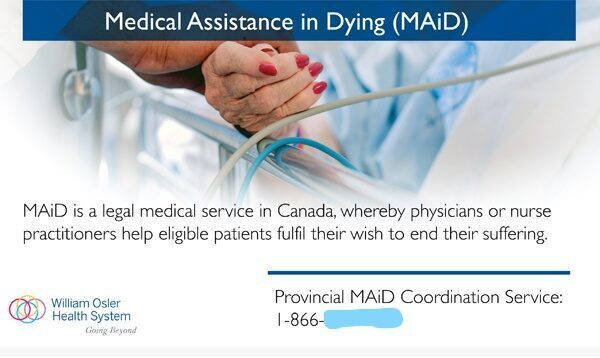
A family is asking the High Court to declare that the State’s failure to provide retrospective recognition of parentage of children born through commercial surrogacy, a practice banned in almost all European countries, amounts to “invidious discrimination”.
The court heard the biological and legally-recognised father of the young boy is arranging his will after receiving an advanced cancer diagnosis.
The child’s genetic mother is not recognised as his legal mother, because she did not give birth to him, though she is currently the boy’s legal guardian, but that will cease when he turns 18.
The family’s counsel, Mark Lynam BL said the case raises significant constitutional issues regarding people who have engaged in international, commercial surrogacy. The couple used a Ukrainian woman to carry and give birth to their genetic son under a commercial arrangement.
The genetic mother said her family’s situation has now become urgent, as the boy’s “only legal parent is battling a life-threatening illness” and attempts to put together a will that would safeguard his financial future has been “close to impossible”, she added.
Mr Lynam said there is no practical route to legal parentage for the genetic mother, as the Adoption Authority of Ireland does not want to engage in the area until proposed legislation has been passed.

A global campaign group that lobbies for radically expansive euthanasia legislation has officially launched in Ireland.
Exit International was formed in 1997 by Philip Nitschke, an Australian doctor and creator of the Sarco pod, a euthanasia device. The organisation says “a good death is a fundamental human right of all rational adults” and they want assisted suicide for anyone who finds life ‘unbearable’.
Exit’s aim in Ireland is to lobby for right-to-die legislation to be passed, and not be limited to seriously ill people. “Exit advocates for the introduction of a Swiss-style law where help depends upon the motive of the person assisting, rather than the terminal illness status of the patient requesting medical help,” its website says.
Tom Curran, the partner of the late right-to-die campaigner Marie Fleming, is to lead the Irish branch.
Curran has been Exit International’s Europe co-ordinator since 2010. Fleming, his late partner, lost a landmark legal challenge to overturn the ban on assisted suicide in 2013. Fleming had advanced multiple sclerosis and argued that the law infringed her constitutional rights because the severity of her disability prevented her from ending her own life without assistance.

New evidence suggests couples who marry without ever having cohabited divorce at a lower rate, even when they marry before the age of 30.
Writing in the Wall Street Journal, researchers Brad Wilcox and Lyman Stone say there is an interesting exception to the conventional wisdom that waiting until 30 to marry is best, if you want to avoid divorce.
“In analyzing reports of marriage and divorce from more than 50,000 women in the U.S. government’s National Survey of Family Growth (NFSG), we found that there is a group of women for whom marriage before 30 is not risky: women who married directly, without ever cohabiting prior to marriage. In fact, women who married between 22 and 30, without first living together, had some of the lowest rates of divorce in the NSFG”.
While the idea that cohabitation is risky is surprising to some, they write that a growing body of research indicates that Americans who live together before marriage are less likely to be happily married and more likely to land in divorce court.
“In looking at the marital histories of thousands of women across the U.S., we found that women who cohabited were 15% more likely to get divorced. Moreover, a Stanford study indicates that the risk is especially high for women who cohabited with someone besides their future husband. They were more than twice as likely to end up in divorce court”, they write.

The number of divorces among same-sex couples rose by over 40 percent in England and Wales in 2020 despite an overall decrease in courts dissolving marriages of 4.5%.
The latest figures from the Office of National Statistics (ONS) show in 2020, there were 1,154 divorces among same-sex couples, increasing by 40.4% from 2019.
Of these, the majority continued to be accounted for by female same-sex divorces (71.3%).
There were 102,438 opposite-sex divorces in 2020, decreasing by 4.8% from 107,599 in 2019.
For same-sex divorces, ‘unreasonable behaviour’ was the most common reason for divorce in 2020 for both female and male couples; unreasonable behaviour accounted for 55.2% of female divorces and 57.0% of male divorces.
In 2020, the average (median) duration of marriage at the time of divorce was 11.9 years for opposite-sex couples, a decrease from 12.4 years in 2019.
For same-sex divorces in 2020, the average (median) duration of marriage at the time of divorce was 4.7 years for female couples and 5.4 years for male couples. Divorces among same-sex couples have only been possible since 2015 following the introduction of same-sex marriages in March 2014.

A court in the German city of Münster has ruled that seriously, as distinct from terminally ill people do not have the right to acquire lethal drugs that would enable them to kill themselves.
The decision was the result of a case in which three chronically ill people requested special permission from the Federal Institute for Drugs and Medical Devices (BfArM) to be allowed to buy the drugs needed to die by suicide.
The regional higher administrative court said the institute was not “obliged to allow seriously ill people who have decided to commit suicide the purchase” of lethal drugs for this purpose.
The ruling added that it is up to a democratically elected government to change the law on acquiring lethal drugs, but that in the meantime such a practice would remain illegal.
BfArM, with its headquarters in the western city of Bonn, has so far rejected 225 requests for suicide-assisting medication, according to Catholic news agency KNA.
Germany’s Constitutional Court overturned a law two years ago that had outlawed assisting those seeking to kill themselves However, a law permitting assisted suicide for the terminally ill has not yet been passed by parliament.

A Cairo court sentenced a Coptic Christian citizen this week to five years in prison over blasphemy, among other related charges, according to a statement released by the Egyptian Initiative for Personal Rights (EIPR).
Marco Gerges was found guilty of ‘misusing religion in promoting extremist thoughts, contempt of Islamic religion, and violating family values’, the statement added.
Gerges had been arrested in June 2021 for having improper images on his mobile phone that were considered to be offensive to Islam.
A source at EIPR said that Gerges is merely an ordinary citizen with no affiliation to any entity.
State security prosecution subsequently interrogated Gerges over his relationships and other personal matters; and he was faced with charges of slandering Islam on social media, which he denied, according to EIPR.
“The verdict against Gerges is one of a series of prosecutions as well as persecutions of citizens within the context of restricting freedom of expression…resorting to unconstitutional and overbroad laws such as blasphemy or that of the violation of family and social values,” EIPR noted in its statement.
“Such [approaches] open the door for misusing these accusations in breaching freedom of expression and thought, belief and creativity,” the statement concluded.
Christians in Egypt represent the biggest minority rated about 10 percent of the total population of about 101 million.

Senator Ronan Mullen has attacked the Health Minister Stephen Donnelly alleging an opaque and misleading process of appointing a Chair to review the operation of the Abortion Act.
Speaking in the Seanad yesterday, the Independent NUI Senator said there was meant to be an open tendering process to find an Independent Chair. However, it has since emerged that there was no open tender; the Minister invited a few candidates to apply.
“What they are trying to do is to cover their tracks afterwards by claiming what they meant by tender was this secret process of contacting a small number of suitable candidates. For all we know now they were actually looking for a crony or somebody who actually was, if you like, on the abortion side of the argument because we have had no honesty and no reassurance,” he said.
“They say that they were going to tender openly and they do not do it. They tender secretly and they never tell us that they are going to do that. Then they change a press release but they do not alert the media to the fact that they have done so. It is nothing but dishonesty, I am afraid. It is an apology that they owe us, and it is not the Minister of State who should have been asked to come in and answer this today”.

There were 3102 assisted-suicide deaths in Ontario, Canada last year, up from 2378 in 2020, representing more than a 30% increase.
The data from the Office of the Chief Coroner of Ontario indicates that the December 2021 figures showed a significant increase with 298 reported euthanasia deaths as compared to 188 reported euthanasia deaths in December 2020.
A further analysis indicates that the growth in killing by lethal injection is getting worse, according to Alex Schadenberg, Executive Director of the Euthanasia Prevention Coalition. He says in the first half of 2021 there were 1363 assisted suicides, up from 1127 in the first half of 2020 or a 21% increase, but in the second half of 2021 there were 1739 assisted suicides up from 1251 in the second half of 2020 which is a 39% increase.
The 2020 Canadian euthanasia report indicated that the number of reported assisted suicides across all of Canada increased by 34% in 2020 to 7595 up from 5,660 in 2019 which was up more than 26% from 4,478 in 2018. Euthanasia deaths represented 2.5% of all Canadian deaths in 2020.
Since the federal government has not released data, based on the Ontario data, Schadenberg predicts “that there were almost 10,000 Canadian euthanasia deaths in 2021 and there have been approximately 31,000 Canadian euthanasia deaths from legalisation to December 31, 2021”.
He adds: “Some would suggest that this indicates that the killing program is successful, but rather I suggest that Canada is normalising killing and our healthcare system is abandoning people to death”.

Men play a critical role in determining whether a woman chooses to have an abortion, according to a survey released last week.
“You can’t be serious about ending abortion unless you are serious about engaging men on the issue,” said Roland Warren, president and CEO of Care Net, a US network of Christian crisis-pregnancy centres.
Care Net released the finding of a Feb. 25-March 26, 2021, survey of 1,000 American men whose spouse or partner had had an abortion. Findings show that roughly 3 out of every 4 men, or 74%, said their partner talked with them about getting the abortion before going through with it.
Forty-two percent of the men surveyed said they either “strongly urged” or “suggested” their partner have an abortion when they learned the woman was pregnant. An additional 31% say they did not give their partner any advice one way or the other.
Among the men surveyed who remained silent about the abortion decision, 63% said they thought it was “her choice” to make, and 61% said they were “ready to support her either way.” Nearly 20 out of every 100 men said they “didn’t feel they could say anything.”
The study found that 38% of men whose partner had an abortion think they were the “most influential on her decision.”
The data also reveals that “men play a key role in breaking the cycle of abortion and building strong families,” Warren said.

Less than one in nine GPs are administering medical abortions, while just over half of the country’s maternity units carry out surgical terminations, over three years after they became legal here.
Since January 2019, abortions have been allowed for any reason during the first 12 weeks of pregnancy, which is when the vast majority of terminations took place.
For the first nine weeks, they are allowed in GP surgeries.
According to Freedom of Information (FOI) figures released to Newstalk, only 405 GPs provide them.
There are about 3,500 GPs across the country – meaning over 88% do not.
Peigin Doyle from Sligo Action for ‘Reproductive Rights Access’ admits no Sligo GP has signed up for the HSE MyOptions website to provide medical abortions in that county.